
Arosa: A Swiss Alpine Paradise
Nestled in the heart of the Swiss Alps, Arosa is a charming village that offers a perfect blend of natural beauty and modern amenities. This picturesque destination is surrounded by towering peaks and pristine lakes, making it a haven for outdoor enthusiasts and nature lovers alike. Whether you visit in the summer or winter, Arosa provides a stunning backdrop for any adventure. In the winter, Arosa transforms into a snowy wonderland, attracting skiers and snowboarders from around the world. The Arosa-Lenzerheide ski area boasts over 225 kilometers of well-groomed slopes, suitable for all skill levels. For those who prefer a slower pace, there are numerous cross-country skiing trails, winter hiking paths, and ice skating rinks. The cozy mountain huts and après-ski bars add to the festive atmosphere, ensuring that your days on the slopes end with a warm and welcoming experience. Summer in Arosa is equally enchanting, with lush green meadows, crystal-clear lakes, and an extensive network of hiking and biking trails. The Obersee and Untersee lakes are perfect for a refreshing swim or a leisurely boat ride. The Arosa Bear Sanctuary is a unique attraction where visitors can observe rescued bears in a natural habitat. Additionally, the village hosts various cultural events and festivals throughout the year, offering a glimpse into local traditions and Swiss hospitality.
Local tips in Arosa
- Check the weather forecast before heading to the slopes, as conditions can change rapidly in the mountains.
- Purchase a visitor card for free or discounted access to local transportation and attractions.
- Book accommodations early, especially during peak seasons, to secure the best options.
- Don't miss the Arosa Bear Sanctuary for a unique and educational experience.
- Explore both Obersee and Untersee lakes for picturesque views and outdoor activities.
Arosa: A Swiss Alpine Paradise
Nestled in the heart of the Swiss Alps, Arosa is a charming village that offers a perfect blend of natural beauty and modern amenities. This picturesque destination is surrounded by towering peaks and pristine lakes, making it a haven for outdoor enthusiasts and nature lovers alike. Whether you visit in the summer or winter, Arosa provides a stunning backdrop for any adventure. In the winter, Arosa transforms into a snowy wonderland, attracting skiers and snowboarders from around the world. The Arosa-Lenzerheide ski area boasts over 225 kilometers of well-groomed slopes, suitable for all skill levels. For those who prefer a slower pace, there are numerous cross-country skiing trails, winter hiking paths, and ice skating rinks. The cozy mountain huts and après-ski bars add to the festive atmosphere, ensuring that your days on the slopes end with a warm and welcoming experience. Summer in Arosa is equally enchanting, with lush green meadows, crystal-clear lakes, and an extensive network of hiking and biking trails. The Obersee and Untersee lakes are perfect for a refreshing swim or a leisurely boat ride. The Arosa Bear Sanctuary is a unique attraction where visitors can observe rescued bears in a natural habitat. Additionally, the village hosts various cultural events and festivals throughout the year, offering a glimpse into local traditions and Swiss hospitality.
When is the best time to go to Arosa?
Iconic landmarks you can’t miss
Arosa Bärenland
Explore Arosa Bärenland, a unique animal park in the Swiss Alps dedicated to bear conservation and immersive wildlife experiences.
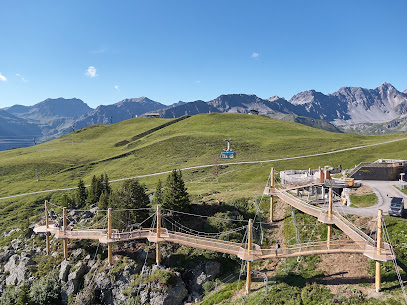
Eichhörnliweg Arosa
Explore Eichhörnliweg Arosa: A family-friendly hiking trail rich in natural beauty and playful adventure amid the Swiss Alps.
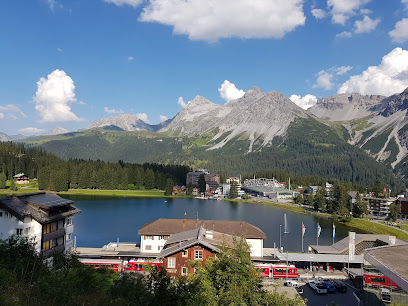
Tschuggen Grand Hotel
Experience unparalleled luxury and breathtaking Alpine views at Tschuggen Grand Hotel, your perfect retreat in Arosa, Switzerland.
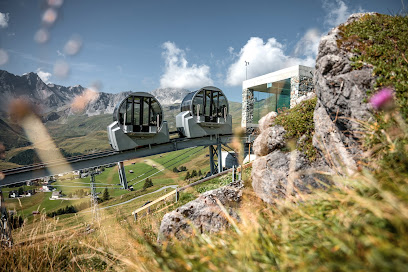
AlpArosa
Discover the authentic taste of Switzerland at AlpArosa, a charming restaurant nestled in the breathtaking Swiss Alps of Arosa, offering traditional cuisine and stunning views.
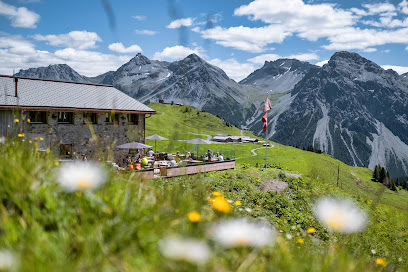
Waldhotel Arosa
Discover the elegance of Waldhotel Arosa, a luxurious Swiss Alps escape, offering stunning views, fine dining, and a rejuvenating spa experience.
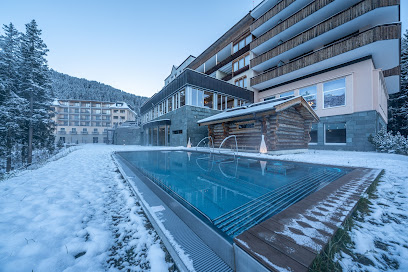
Arosa Kulm Hotel & Alpin Spa
Experience luxury and adventure at Arosa Kulm Hotel & Alpin Spa, a five-star retreat in the breathtaking Swiss Alps, perfect for relaxation and outdoor fun.
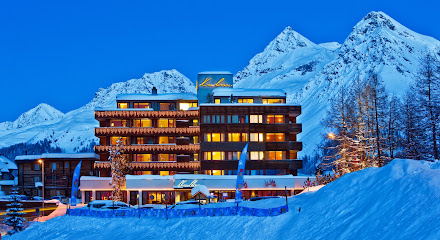
Sennerei Maran
Experience the rich flavors of Swiss dairy at Sennerei Maran, Arosa's charming dairy store, where artisanal craftsmanship meets breathtaking Alpine scenery.
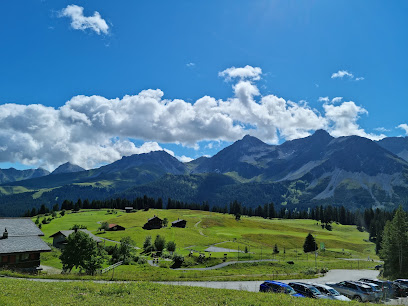
Valsana Hotel & Ferienwohnungen Arosa
Discover luxury and nature at Valsana Hotel & Ferienwohnungen Arosa, a premier destination for relaxation and adventure in the Swiss Alps.

Bullrian
Discover the culinary fusion of local and global flavors at Bullrian in Arosa, where every dish is a delightful journey for your taste buds.
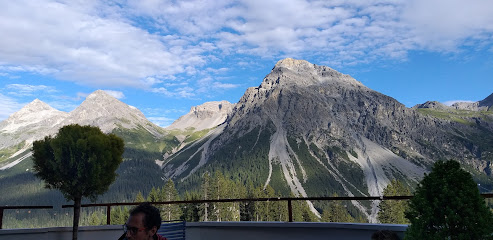
Hotel Prätschli
Experience the charm of Hotel Prätschli, your perfect alpine retreat in Arosa, combining comfort with stunning mountain scenery and adventure.
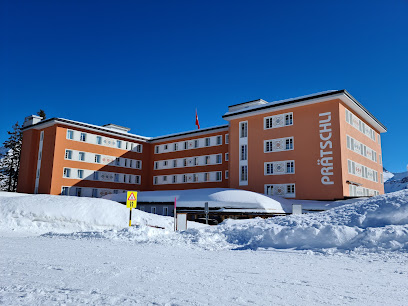
Arosa Tourismus
Explore Arosa, a stunning Swiss alpine resort, offering year-round adventures from skiing to hiking, and a vibrant local culture to discover.
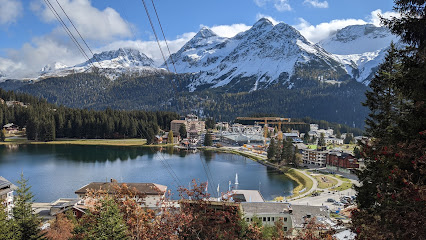
Hotel Hohe Promenade
Discover the charm of Arosa at Hotel Hohe Promenade, where delightful cuisine meets stunning alpine views in a cozy atmosphere.
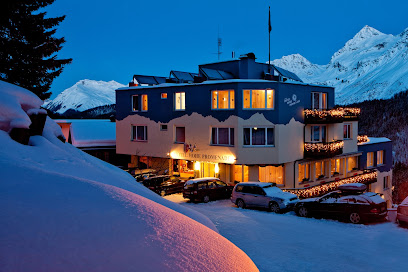
AROSA exklusiv
Discover the luxury of AROSA exklusiv: Your perfect alpine holiday apartment in the stunning Swiss Alps, ideal for relaxation and adventure.
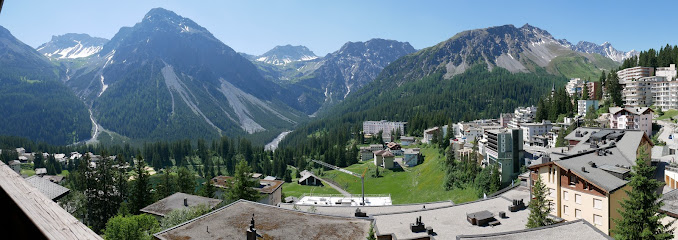
Bergkirchli
Experience the serene beauty and rich history of Bergkirchli, a stunning Protestant church and tranquil tourist attraction nestled in the Swiss Alps.
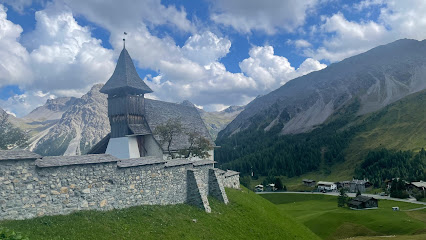
Seilpark Arosa
Experience the thrill of high ropes courses amidst the breathtaking landscapes of Arosa, Switzerland - perfect for adventure lovers and nature enthusiasts alike.
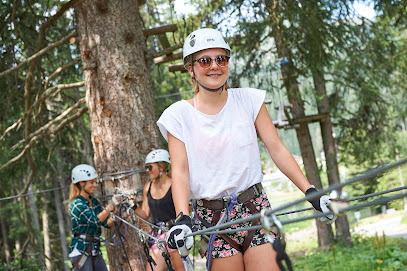
Unmissable attractions to see
Heididorf
Explore Heididorf in Maienfeld, Switzerland, a delightful homage to the world of 'Heidi' with rich cultural heritage and breathtaking alpine views.
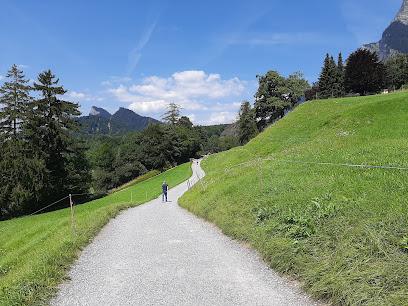
Arosa Bärenland
Explore Arosa Bärenland, a beautiful animal park in the Swiss Alps dedicated to bear conservation and wildlife education amidst stunning mountain landscapes.
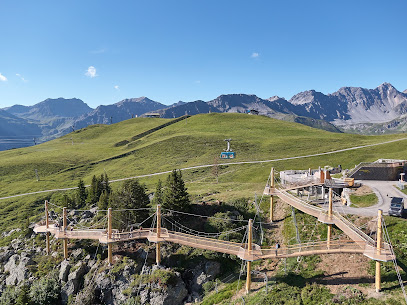
Swiss National Park
Experience the unparalleled beauty and tranquility of the Swiss National Park, a natural wonderland in the heart of the Alps, perfect for all nature lovers.
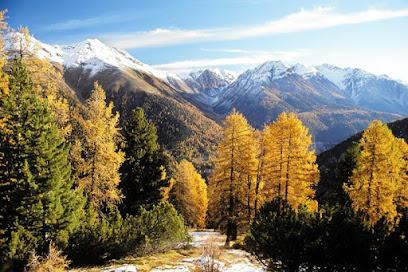
Caumasee
Experience the breathtaking beauty of Caumasee, a stunning turquoise lake nestled in the Swiss Alps, perfect for relaxation and outdoor adventures.
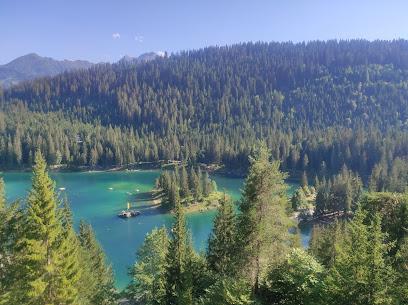
Burg Gutenberg
Explore the historic Burg Gutenberg in Balzers, a stunning castle offering rich cultural experiences and breathtaking views in the heart of Liechtenstein.
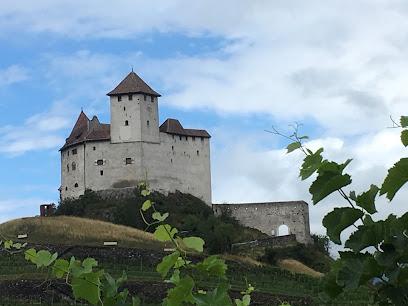
Bernina Pass
Explore the stunning Bernina Pass in Switzerland for breathtaking views, thrilling hikes, and a taste of Swiss culture amid the majestic Alps.

Rheinschlucht
Discover the breathtaking beauty of Rheinschlucht, Switzerland's Grand Canyon, with stunning views, hiking trails, and thrilling river adventures.
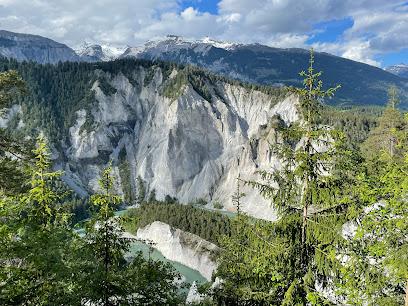
Air-Davos Paragliding
Experience breathtaking paragliding over the stunning Swiss Alps with Air-Davos, your gateway to adventure in Davos, Switzerland.
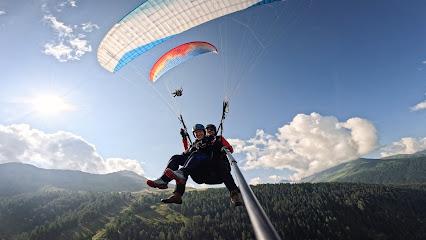
Lake St Moritz
Explore the captivating allure of Lake St Moritz, where breathtaking landscapes meet luxurious experiences in the heart of the Swiss Alps.

Muottas Muragl
Experience the breathtaking views and thrilling adventures at Muottas Muragl, a stunning mountain peak in the Swiss Alps, near Samedan.

Bündner Kunstmuseum
Explore the rich history of Swiss art at Bündner Kunstmuseum in Chur, a cultural landmark showcasing diverse artistic expressions and creativity.
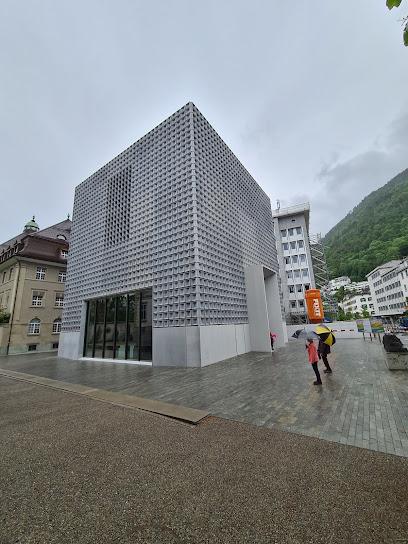
Joyride Paragliding
Discover the thrill of paragliding in Davos, Switzerland, and enjoy breathtaking views of the majestic Alps while soaring through the sky.
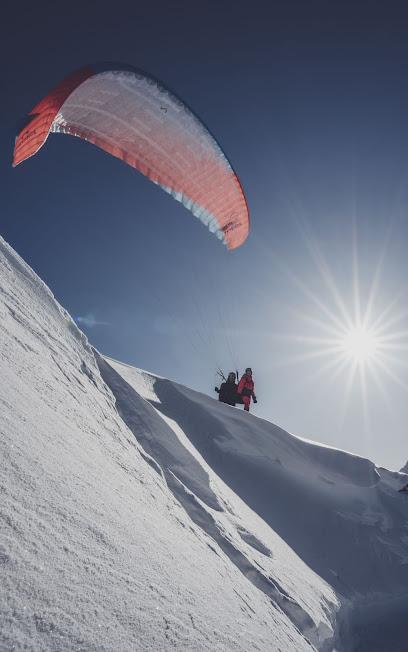
Kathedrale St. Mariä Himmelfahrt
Explore the stunning Kathedrale St. Mariä Himmelfahrt, a historical Catholic cathedral in Chur, showcasing exquisite architecture and serene ambiance.
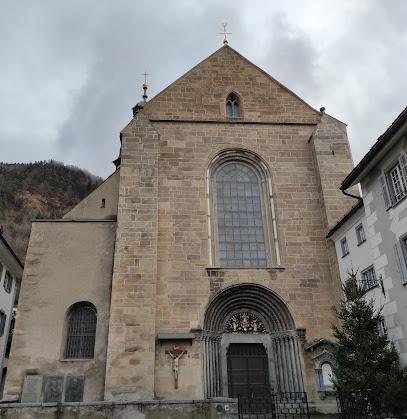
Reformierte Martinskirche
Explore the architectural beauty and rich history of Reformierte Martinskirche, a must-see tourist attraction in Chur, Switzerland.
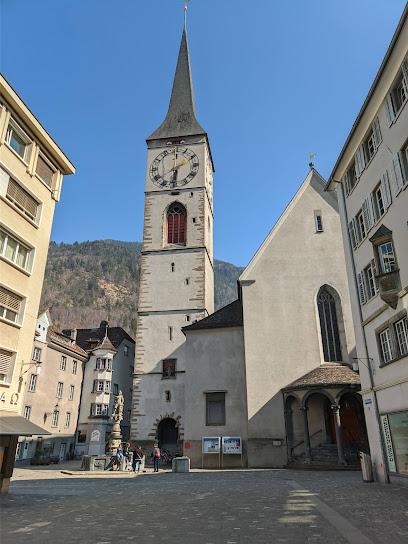
Lake Silvaplana
Experience the serene beauty and adventure of Lake Silvaplana, a hidden gem in the Swiss Alps offering breathtaking views and outdoor activities.
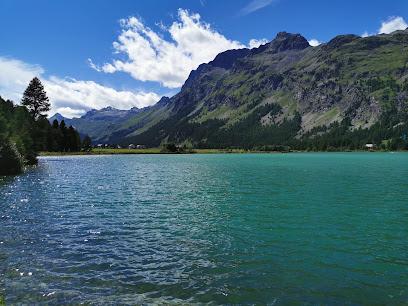
Essential places to dine
Güterschuppen Arosa
Discover Güterschuppen Arosa - where exquisite cuisine meets breathtaking alpine views in a charming setting.
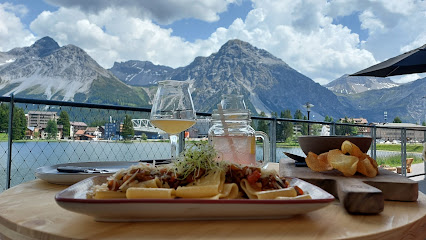
Hörnlihütte Arosa
Discover authentic Swiss flavors at Hörnlihütte Arosa, where culinary delights meet breathtaking mountain scenery.
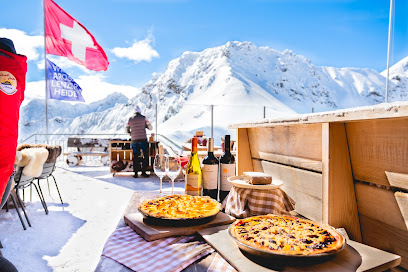
Grottino
Experience authentic Italian flavors at Grottino in Arosa – where every meal is a celebration of taste amidst stunning alpine views.
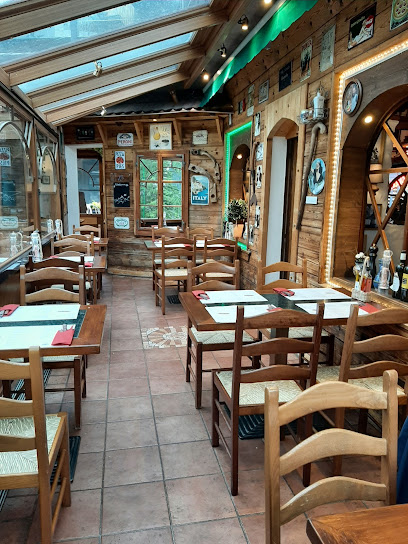
AlpArosa
Discover the flavors of Switzerland at AlpArosa – a charming restaurant offering traditional cuisine amidst breathtaking alpine views.
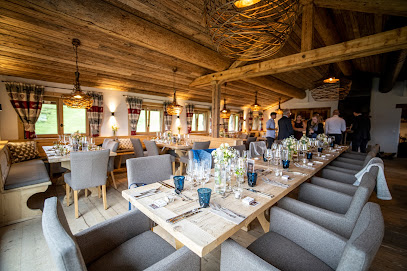
360° Panoramarestaurant Weisshorngipfel
Experience exquisite Swiss dining amidst breathtaking alpine views at 360° Panoramarestaurant Weisshorngipfel in Arosa.
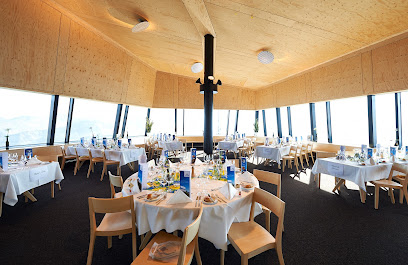
Waldhotel Arosa
Experience luxury dining and rejuvenating wellness at Waldhotel Arosa amidst the stunning Swiss Alps.
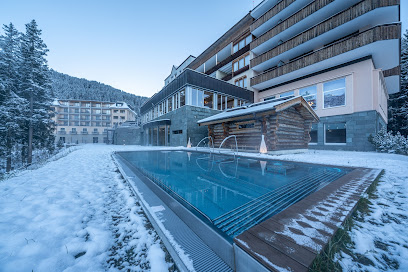
Alpenblick Bergrestaurant & Hotel
Experience authentic Swiss cuisine at Alpenblick Bergrestaurant & Hotel amidst stunning alpine vistas in beautiful Arosa.
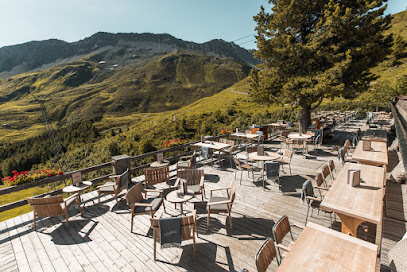
aifach arosa
Discover exceptional Swiss cuisine at Aifach Restaurant in Arosa, where alpine charm meets culinary excellence.
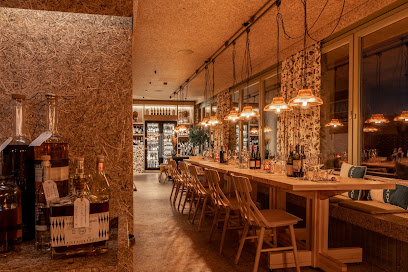
Bergrestaurant Sattelhütte
Experience authentic Swiss cuisine at Bergrestaurant Sattelhütte with breathtaking views in Arosa's stunning alpine landscape.
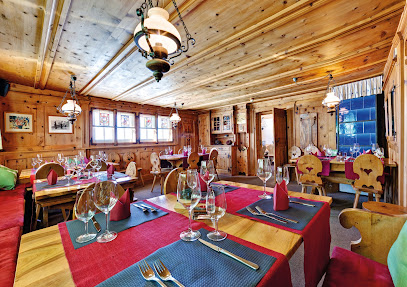
Provisorium13
Discover culinary excellence at Provisorium13 in Arosa – where authentic Swiss flavors meet breathtaking alpine views.
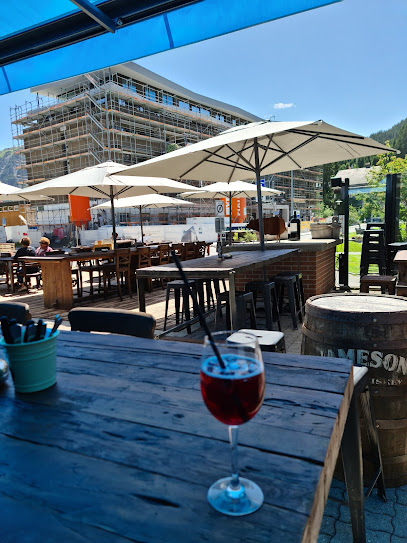
Restaurant Grischuna
Experience authentic Swiss cuisine at Restaurant Grischuna in Arosa - where tradition meets breathtaking alpine views.
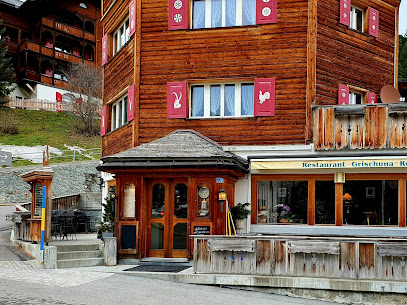
Hotel Gspan
Discover exquisite dining and luxurious lodging at Hotel Gspan in Arosa - your gateway to Swiss culinary delights amidst breathtaking mountain scenery.
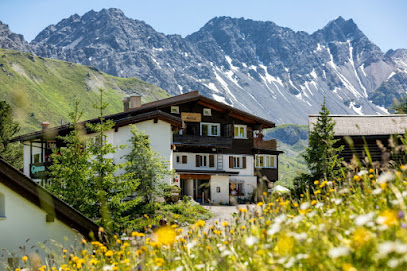
Hotel Restaurant Erzhorn
Discover the perfect blend of comfort and cuisine at Hotel Restaurant Erzhorn in Arosa—your gateway to alpine adventures.
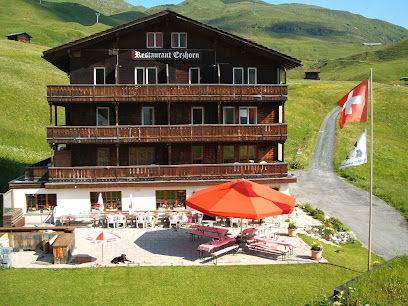
Hotel Seehof Arosa
Discover the perfect blend of gourmet dining and cozy accommodation at Hotel Seehof Arosa in Switzerland's stunning Alpine landscape.
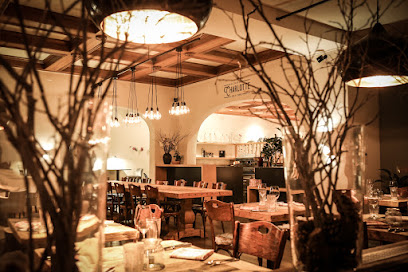
Burestübli Restaurant
Experience authentic Swiss cuisine at Burestübli Restaurant in Arosa - where tradition meets stunning mountain views.
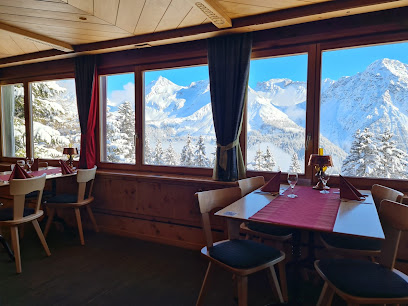
Markets, malls and hidden boutiques
Coop Supermarkt Arosa Dorf
Discover the best of Swiss groceries and local products at Coop Supermarkt Arosa Dorf, your essential shopping destination in Arosa.
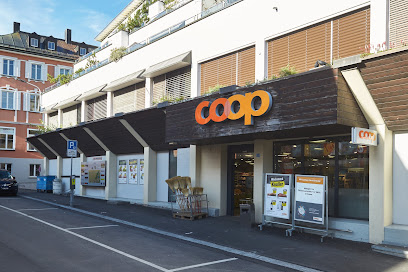
Coop Supermarkt Arosa Valsana
Explore the flavors of Arosa at Coop Supermarkt Arosa Valsana, your go-to supermarket for all essentials during your alpine adventure.
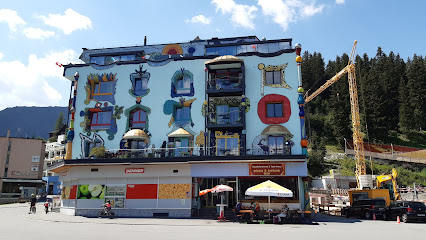
Cindy's Delikatessen und Geschenke
Discover gourmet delights and unique gifts at Cindy's Delikatessen in Arosa, a must-visit treasure for foodies and souvenir shoppers.

Denner Express
Discover Denner Express in Arosa, your discount supermarket for fresh local produce, snacks, and essentials at unbeatable prices.
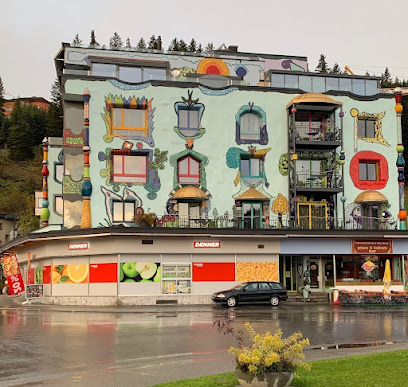
Steiner-Beck AG, Café Postplatz
Discover the enchanting flavors of Arosa at Steiner-Beck AG, Café Postplatz – where every bite is a delightful escape into Swiss pastry perfection.
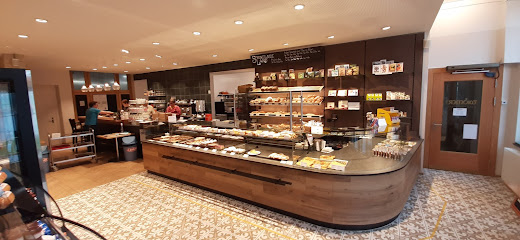
Carmenna Sport
Explore Arosa's alpine beauty with Carmenna Sport's exceptional range of sporting goods and ski rentals, perfect for every adventurer.
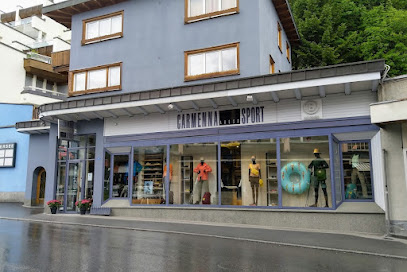
Steiner-Beck AG
Experience the taste of Arosa at Steiner-Beck AG, where delightful pastries and freshly brewed coffee await amidst stunning mountain scenery.
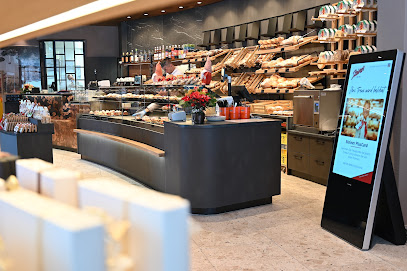
Schmid Sport Arosa AG
Discover top-notch sporting gear and expert service at Schmid Sport Arosa AG, your go-to store in the heart of the Swiss Alps.
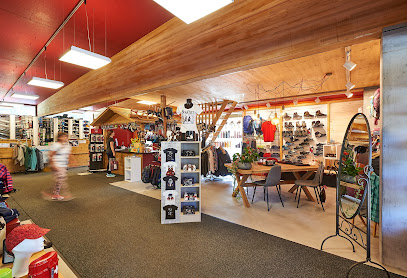
Dagi's Bündnerspezialitäten
Discover authentic Swiss flavors at Dagi's Bündnerspezialitäten, a deli in Arosa offering local specialties and fresh ingredients.
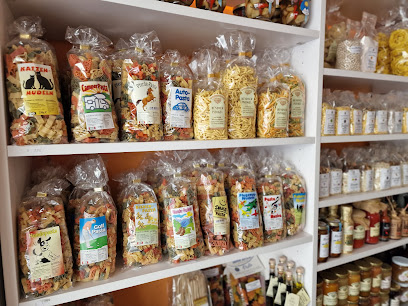
Flüeler Hauswaren GmbH
Discover unique gifts and Swiss craftsmanship at Flüeler Hauswaren GmbH in Arosa, your go-to destination for home goods and thoughtful souvenirs.
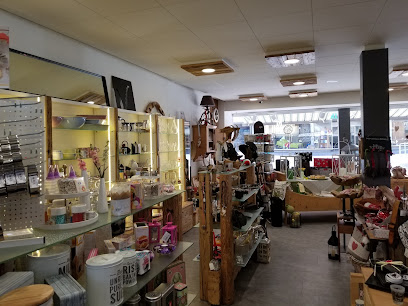
Gisler Sport Valsana
Discover the best in outdoor gear and rentals at Gisler Sport Valsana, your one-stop shop for skiing, biking, and all your alpine adventures in Arosa.
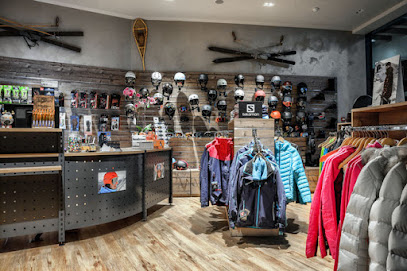
Hopp Arosa
Explore Hopp Arosa for an unforgettable culinary experience in the heart of the Swiss Alps, offering a variety of local and international food products.
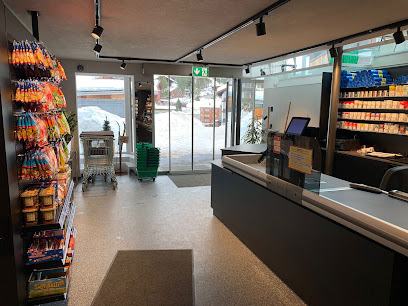
Naturladen, S. Meyer u. D. Wehrli
Explore the natural essence of Arosa at Naturladen, your go-to store for organic products and eco-friendly goods amidst the beautiful Swiss Alps.
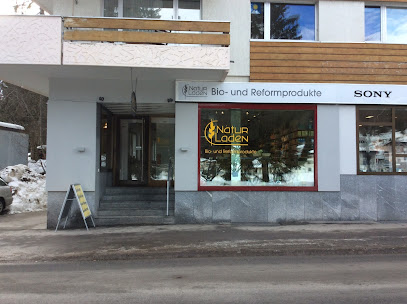
Swiss Alp Fantasy
Explore unique souvenirs at Swiss Alp Fantasy, a charming store in Davos offering the essence of the Swiss Alps in every item.
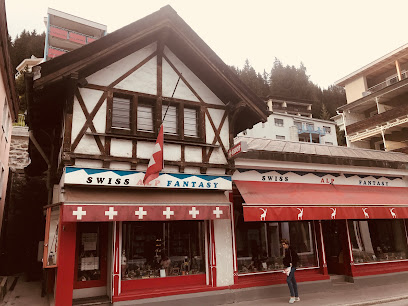
Pill Apotheke & Drogerie Montana
Discover the essential pharmacy in Arosa for health and wellness products, expert advice, and a welcoming atmosphere.
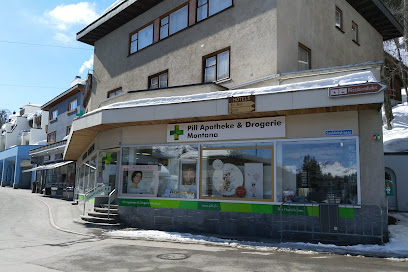
Essential bars & hidden hideouts
Güterschuppen Arosa
Discover exquisite Swiss cuisine at Güterschuppen Arosa, where every meal is a celebration of the breathtaking alpine landscape.
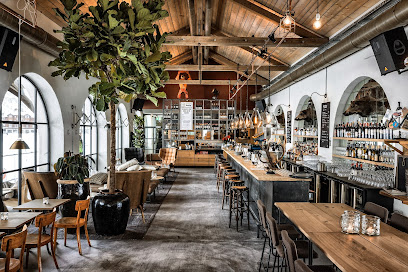
KuhBar Arosa
Discover the charm of KuhBar Arosa, a cozy bar where locals and tourists unite over great drinks and stunning mountain views.
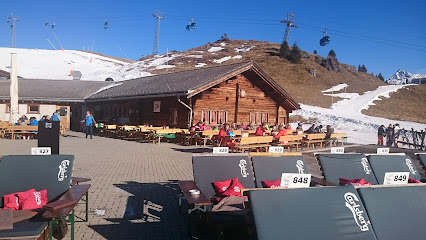
Lindemann's Overtime Bar
Discover the lively atmosphere of Lindemann's Overtime Bar in Arosa, where stunning views and delicious drinks create unforgettable memories.
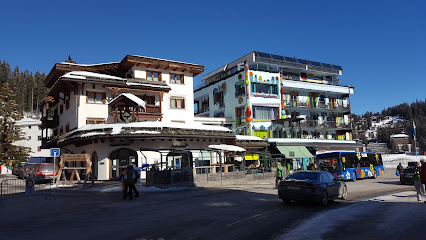
Bullrian
Discover Bullrian in Arosa for a unique dining experience that unites Swiss culinary traditions with innovative fusion flavors.
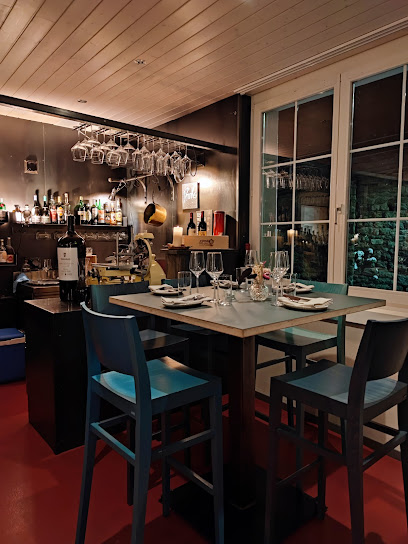
Simmen's Rösti
Discover the authentic flavors of Switzerland at Simmen's Rösti, a must-visit destination in Arosa offering traditional Swiss cuisine.
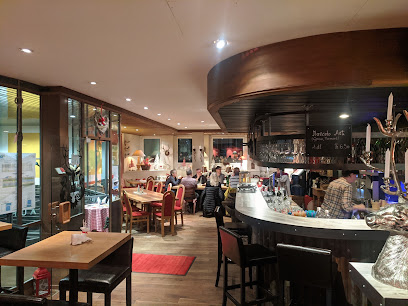
Sit Hütte
Experience the flavors of Arosa at Sit Hütte, a charming restaurant offering local cuisine against stunning alpine backdrops.
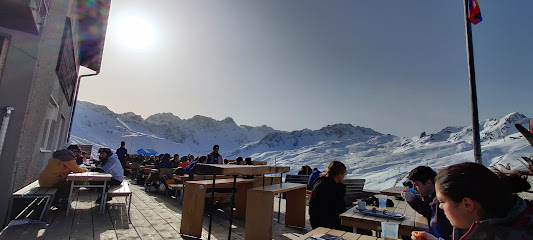
Brüggli Bar Arosa
Discover the charm of Brüggli Bar Arosa, where cozy atmospheres meet delightful drinks in the heart of the Swiss Alps.
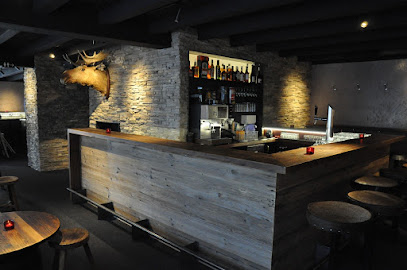
Munggaloch Bar
Experience the charm of Müggaloch Bar in Arosa, where stunning views meet a vibrant atmosphere perfect for relaxation and socializing.
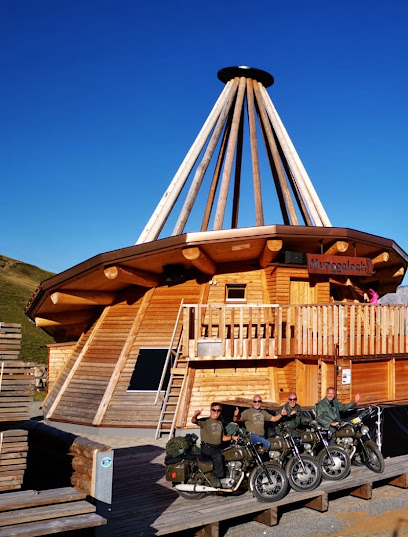
Wunderbar Arosa
Experience the charm of Swiss hospitality at Wunderbar Arosa, where the beauty of the Alps meets a warm and inviting bar atmosphere.
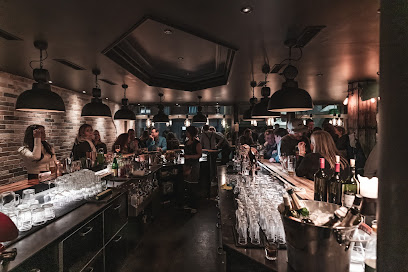
Halli Galli mit LOS-Bar Arosa
Experience the vibrant atmosphere and delicious drinks at Halli Galli mit LOS-Bar in Arosa, the perfect place to unwind after alpine adventures.
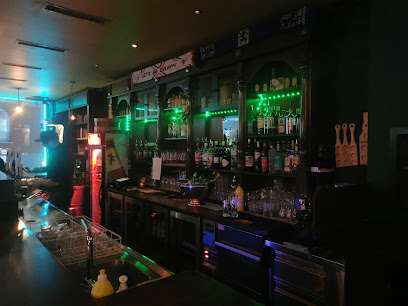
Vetterstübli
Experience the best of Swiss cuisine with stunning mountain views at Vetterstübli in scenic Arosa.
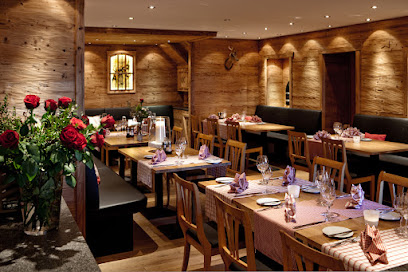
Bar Waldeck
Discover the vibrant atmosphere of Bar Waldeck in Arosa, where Swiss hospitality meets stunning mountain views, perfect for relaxation and socializing.
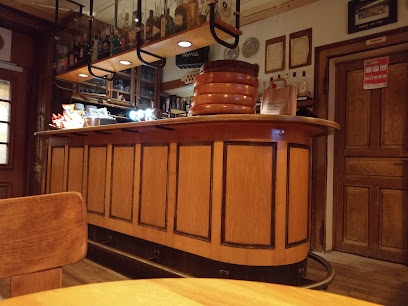
Small‘s
Unwind at Small's Bar in Arosa - a cozy retreat offering a delightful selection of drinks and a warm atmosphere for all visitors.
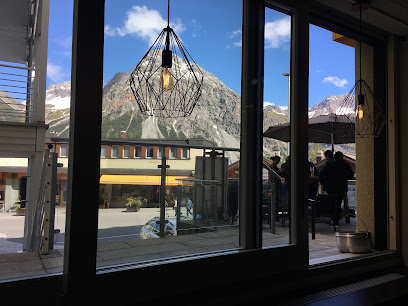
Sternebar
Discover the cozy ambiance and breathtaking views at Sternebar, the perfect retreat for relaxation in the heart of Arosa, Switzerland.
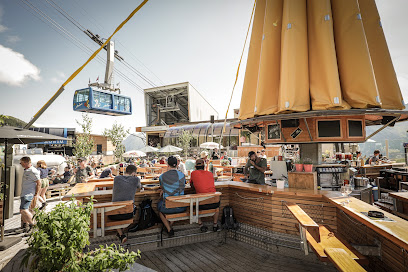
Local Phrases
-
- HelloHallo
[ha-loh] - GoodbyeAuf Wiedersehen
[ow-f vee-der-zay-en] - YesJa
[yah] - NoNein
[nine] - Please/You're welcomeBitte
[bit-teh] - Thank youDanke
[dahn-keh] - Excuse me/SorryEntschuldigung
[ent-shool-dee-gung] - How are you?Wie geht es Ihnen?
[vee gayt es een-en] - Fine. And you?Gut. Und Ihnen?
[goot oont een-en] - Do you speak English?Sprechen Sie Englisch?
[shpre-khen zee eng-leesh] - I don't understandIch verstehe nicht
[ikh fer-shteh-eh neekt]
- HelloHallo
-
- I'd like to see the menu, pleaseIch würde gerne die Speisekarte sehen, bitte
[ikh vur-deh gehr-neh dee shpay-zeh-kahr-teh zeh-en, bit-teh] - I don't eat meatIch esse kein Fleisch
[ikh ess-eh kine flysh] - Cheers!Prost!
[prohst] - I would like to pay, pleaseIch möchte bitte zahlen
[ikh merkht-eh bit-teh tsah-len]
- I'd like to see the menu, pleaseIch würde gerne die Speisekarte sehen, bitte
-
- Help!Hilfe!
[hil-feh] - Go away!Gehen Sie weg!
[geh-en zee vehk] - Call the Police!Rufen Sie die Polizei!
[roo-fen zee dee poh-lee-tsay] - Call a doctor!Rufen Sie einen Arzt!
[roo-fen zee i-nen ahrtz] - I'm lostIch habe mich verlaufen
[ikh hah-beh meekh fer-lou-fen] - I'm illIch bin krank
[ikh been krank]
- Help!Hilfe!
-
- I'd like to buy...Ich möchte kaufen...
[ikh merkht-eh kow-fen] - I'm just lookingIch schaue nur
[ikh shou-eh noor] - How much is it?Wie viel kostet es?
[vee feel koh-stet es] - That's too expensiveDas ist zu teuer
[dahs ist tsoo toy-er] - Can you lower the price?Können Sie den Preis senken?
[kehr-nen zee den prees zehn-ken]
- I'd like to buy...Ich möchte kaufen...
-
- What time is it?Wie spät ist es?
[vee shpet ist es] - It's one o'clockEs ist ein Uhr
[es ist ine oor] - Half past (10)Halb zehn
[halb tsayn] - MorningMorgen
[mohr-gen] - AfternoonNachmittag
[nahk-mit-tahk] - EveningAbend
[ah-bent] - YesterdayGestern
[geh-stern] - TodayHeute
[hoi-teh] - TomorrowMorgen
[mohr-gen] - 1Eins
[ines] - 2Zwei
[tsvai] - 3Drei
[dry] - 4Vier
[feer] - 5Fünf
[foontf] - 6Sechs
[zeks] - 7Sieben
[zee-ben] - 8Acht
[ahkt] - 9Neun
[noyn] - 10Zehn
[tsayn]
- What time is it?Wie spät ist es?
-
- Where's a/the...?Wo ist ein/der...?
[vo ist ine/dehr] - What's the address?Was ist die Adresse?
[vas ist dee ah-dreh-seh] - Can you show me (on the map)?Können Sie mir zeigen (auf der Karte)?
[kehr-nen zee meer tsigh-en (ouf dehr kar-teh)] - When's the next (bus)?Wann kommt der nächste (Bus)?
[vahn kohmt dehr nek-steh (boos)] - A ticket (to ....)Eine Fahrkarte (nach ....)
[i-ne fahr-kahr-teh (nahkh ....)]
- Where's a/the...?Wo ist ein/der...?
History of Arosa
-
Arosa's history can be traced back to the Bronze Age, with evidence of early human settlement found in the region. By the 13th century, the area was part of the Free State of the Three Leagues, a precursor to the modern canton of Graubünden. The name 'Arosa' first appeared in historical records in 1330, marking the beginning of its documented history.
-
In the late 19th century, Arosa gained fame as a health resort due to its pristine air and beautiful alpine setting. The construction of the first sanatorium in 1883 marked the start of its development as a spa town. The influx of visitors seeking treatment for tuberculosis and other ailments boosted the local economy and led to the establishment of various hotels and amenities.
-
The opening of the Chur-Arosa railway in 1914 was a significant milestone in Arosa's history. The railway made the town more accessible and spurred further growth in tourism. The scenic train journey through the Swiss Alps remains one of the highlights for visitors to this day.
-
During World War II, Arosa, like much of Switzerland, remained neutral. The town continued to function as a health resort and tourist destination. After the war, Arosa experienced a boom in winter sports tourism, with the establishment of ski resorts and the expansion of winter sports facilities.
-
Today, Arosa is a year-round destination known for its outdoor activities, including skiing, hiking, and mountain biking. The merger with the nearby Lenzerheide ski resort in 2014 created one of the largest ski areas in Switzerland. The town also hosts various cultural events, such as the Arosa Humor Festival and the Arosa ClassicCar event, celebrating its rich history and vibrant community.
Arosa Essentials
-
Arosa is located in the Swiss canton of Graubünden. The nearest international airports are Zurich Airport and Friedrichshafen Airport in Germany. From Zurich, you can take a train to Chur, and then transfer to the Arosa Line, which offers a scenic route to Arosa. The total journey takes approximately 3 hours. Alternatively, you can drive from Zurich to Arosa, which takes about 2 hours and 30 minutes.
-
Arosa is a compact town, making it easy to explore on foot. For longer distances, the Arosa Bergbahnen operates efficient cable cars and chairlifts, especially for accessing ski slopes and hiking trails. Local buses connect different parts of the town and are included in many tourist passes. Taxis are available but less common. Renting a car is also an option, though parking can be limited.
-
The official currency in Switzerland is the Swiss Franc (CHF). Credit cards are widely accepted in hotels, restaurants, and shops. ATMs are available throughout Arosa, and most machines accept international cards. It is advisable to carry some cash for smaller establishments and public transport.
-
Arosa is generally a very safe destination for tourists. Violent crime is rare, and the town has a low crime rate. However, it is wise to take standard precautions, such as keeping an eye on your belongings in crowded areas and avoiding poorly lit areas at night. There are no specific high-crime areas targeting tourists.
-
In case of emergency, dial 112 for immediate assistance. A medical clinic is available in Arosa, and the nearest hospitals are in Chur. Pharmacies are also available for minor health issues. It is highly recommended to have travel insurance that covers medical emergencies and evacuation.
-
Fashion: Do dress in layers, as the weather can change rapidly. Don't wear ski boots in restaurants or shops. Religion: Do respect local customs, though Arosa is not particularly religious. Public Transport: Do be punctual, as Swiss public transport is known for its timeliness. Don't forget to validate your ticket. Greetings: Do greet people with a friendly 'Grüezi' or 'Hallo'. A handshake is common in formal settings. Eating & Drinking: Do try local specialties like fondue and rösti. Don't forget to make a reservation for dinner, especially during peak seasons.
-
To experience Arosa like a local, take part in the 'Arosa Bear Sanctuary' visit, which offers insight into local wildlife conservation efforts. Attend local events such as the Arosa Humor Festival in December for a taste of Swiss culture. For a unique experience, take a walk around the Obersee Lake and visit the Arosa Squirrel Trail, where friendly squirrels may eat from your hand.
Nearby Cities to Arosa
-
Things To Do in Davos
-
Things To Do in Balzers
-
Things To Do in St. Moritz
-
Things To Do in Triesenberg
-
Things To Do in Vaduz
-
Things To Do in Schaan
-
Things To Do in Eschen
-
Things To Do in Mauren
-
Things To Do in Gamprin
-
Things To Do in Schellenberg
-
Things To Do in Ruggell
-
Things To Do in St. Anton am Arlberg
-
Things To Do in Dornbirn
-
Things To Do in Bregenz
-
Things To Do in Locarno










